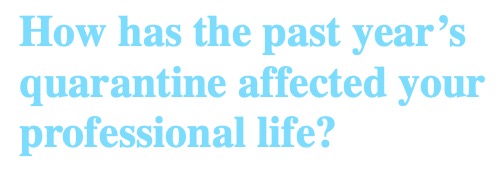The academic life is proverbially described as isolating and solitary. The past year disproved that. For thousands of participants in the Department of State’s Fulbright program, 2020 began with the specter of a global pandemic and the possibility of transmitting SARS-CoV-2 to the participants’ loved ones. For many, this also entailed returning to the US without housing and without health insurance amid an evolving global health crisis. In these unstable circumstances, the 2019–2020 cohort of US-Italy Fulbrighters demonstrated courage and composure. Fulbrighters who had to flee the worst affected red zones in northern Italy were taken in by colleagues in other regions. When ordered to return to the US immediately or forfeit our “alumni status” and our grants, we updated each other as flights were canceled en masse and scenes of teeming airport corridors flooded the news. None of us could have imagined that we would come together, support one another, and advocate for ourselves and the global Fulbrighter community in the ways we did.
These events shook me from my academic slumber and forced me to think deeply about politics, self-government, and the common good. As the initial panic settled, the ensuing shelter-in-place protocols became a cage from which to observe the antinomy and anomie of life dans l’époque covidienne. As has been noted, “social distancing” is not the same as physical distancing, and the pandemic justified a status exceptionis. The fear of death may sting more than death itself. Contrary to technocratic fever dreams, humans are not ciphers in a code to be mined and crunched but flesh and bone, soul and body, mind and matter. How best to balance liberty and responsibility is an ancient question to which the American experiment has been one answer, and a question that each generation must answer afresh.
J. G. AMATO, PhD student in History, Stanford University

